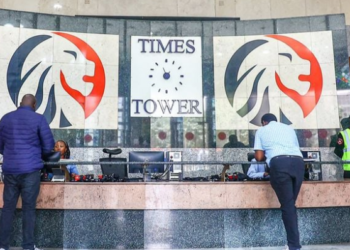SMEs in Kenya have demonstrated remarkable resilience and adaptability. According to the Kenya Institute for Public Policy Research and Analysis (KIPPRA), SMEs contribute to over 90.0% of total labour force and play a key role in poverty reduction and economic development.
There are over 7.4 million SMEs employing approximately 14.9 million Kenyans in various sectors of the economy. These entrepreneurial ventures, often the backbone of local economies, have weathered storms by embracing strategic practices. One critical factor contributing to their resilience is insurance.
Insurance provides a safety net for SMEs. Whether it’s property insurance safeguarding physical assets or business interruption insurance covering revenue losses during disruptions, these policies offer financial stability. When unexpected events occur, insurance pay-outs help businesses stay afloat, pay bills, and retain employees.
Moreover, insurance encourages operational efficiency. For instance, motor insurance ensures that delivery vehicles remain on the road even after accidents. Health insurance keeps employees healthy and productive, reducing absenteeism and medical expenses.
By minimizing disruptions, insurance allows SMEs to focus on growth and innovation, enhancing their competitiveness in the market. Entrepreneurs face various risks – from natural disasters to legal liabilities. Insurance mitigates these risks by providing comprehensive coverage tailored to specific needs.
For instance, liability insurance protects against lawsuits stemming from accidents or injuries on business premises, while cyber insurance guards against data breaches and cyberattacks. By transferring risk to insurers, SMEs can concentrate on core activities without the constant fear of financial ruin.
Business interruption insurance is a lifeline during crises. When unforeseen events force temporary closures, this coverage compensates for lost income and ongoing expenses. It enables SMEs to maintain operations, pay bills, and retain staff until normalcy returns, preventing long-term damage to their financial health.
To further enhance resilience, SMEs should tailor insurance policies to their unique needs. Whether it’s motor insurance for delivery fleets, property insurance for retail establishments, or specialized coverage for artisanal businesses, personalized solutions provide added protection against potential risks.
Regular risk assessments play a crucial role in identifying vulnerabilities and determining appropriate insurance coverage. In the same regard, offering comprehensive health coverage not only attracts and retains talent but also demonstrates a commitment to employee welfare, fostering a positive work culture.
As digital threats continue to increase, cybersecurity insurance is becoming increasingly crucial for SMEs. It protects against data breaches, ransomware attacks, and business disruptions caused by cyber incidents.
Given the rising prevalence of cyber threats, SMEs must safeguard their digital assets and sensitive information to prevent financial losses and reputational damage.
For SMEs, it is crucial to understand that insurance isn’t merely a cost; it’s an investment in resilience. By securing their businesses, entrepreneurs empower themselves to weather storms, adapt, and thrive.


















